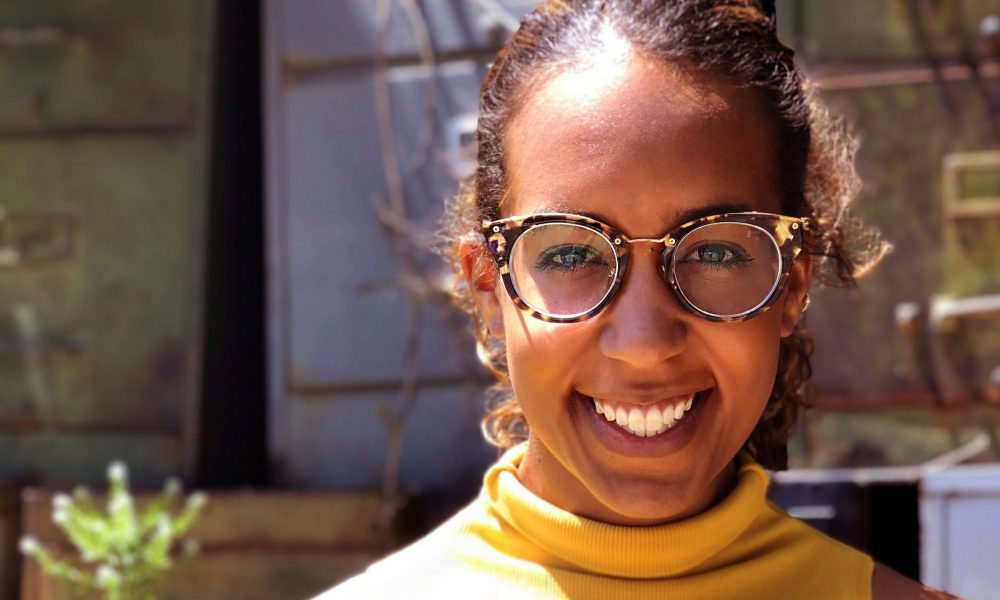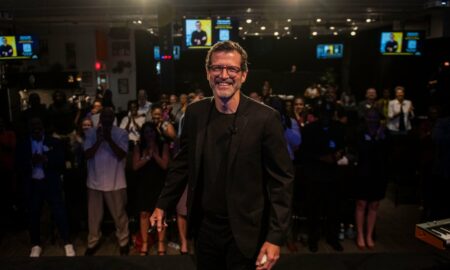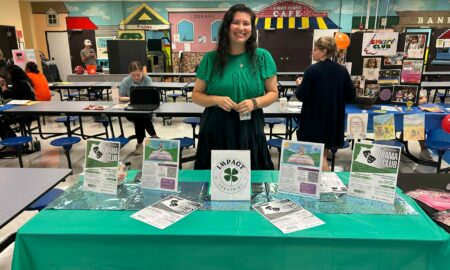

Today we’d like to introduce you to Jasmine Burton.
Jasmine, can you briefly walk us through your story – how you started and how you got to where you are today.
In 2011, as a freshman at Georgia Tech, I was inspired to do something about the global sanitation crisis at a women’s leadership conference. I learned from a Georgia Tech alumna and one of my current mentors, Susan Davis of Improve International, that nearly half of the world doesn’t have access to a toilet; of those people, women, and girls are disproportionately burdened. Specifically, I learned that pubescent girls in the developing world frequently drop out of school as a result of their schools lacking toilets. As a product designer and woman in higher education, this reality angered me to the point that I left the conference and called my mom to say “I know what I am supposed to do. I am supposed to design toilets”.
This declaration about my destiny was made at the wise age of 18 and was fueled by my design education. Three years later, my senior design team was the first all-female team to win the Georgia Tech InVenture Prize Competition, the largest undergraduate invention competition in the United States. Subsequently, I had the incredible opportunity to further design and pilot the SafiChoo toilet for the Kakuma refugee camp as a part of an interdisciplinary senior design capstone with Sanivation. I have since founded Wish for WASH (http://wishforwash.com/), a social impact organization that seeks to bring innovation to sanitation through culturally specific research, design and education to further the development of the SafiChoo toilet and similar projects.
In 2015, I led our Indiegogo crowdfunding campaign (https://www.indiegogo.com/projects/wish-for-wash-toilet-testing-in-zambia#/) that was over 100% funded to support our 2016 Zambian beta pilot conducted during my Global Health Corps fellowship (https://ghcorps.org/). After securing funding, we manufactured, shipped, installed and monitored the newest version of the SafiChoo toilet in tandem with Water and Sanitation for the Urban Poor Zambia (WSUP) and the Lusaka Water and Sewage Company (LWSC). This was again made possible through my communities of support. Ultimately, we were successful in implementing a 10-week beta pilot of a water-based pour-flush version of the SafiChoo toilet that was conducted in a peri-urban compound in Lusaka, Zambia. SafiChoo received positive feedback from the community and project stakeholders, which has led to an interest in scaling our toilet in the city. We have since piloted a dry, self-contained version of the SafiChoo toilet in a secondary pilot in a resettled refugee farming area of Atlanta, Georgia.
While seeking funding to scale our manufacturing processes for a market viability pilot, we are currently launching the educational arm of the Wish for WASH organization in tandem with Atlanta-based educators and schools that have supported our story and mission over the years. From 2016-2017, I was an MSc in Public Health Candidate and Rotary Global Grant Scholar at the London School of Hygiene and Tropical Medicine. After completing my degree, I began work at the Toilet Board Coalition (http://www.toiletboard.org/) to conduct research on business models for sanitation startups across world. I was a part of the Toilet Board Coalition’s release of the Sanitation Economy, which is a robust marketplace of products and services, renewable resource flows, data and information that could transform future cities, communities, and businesses in 2017.
Each phase of my journey included doors opened to me by my communities of support, inclusive of my family, friends, Georgia Tech staff, students and alumni. These opportunities have enabled me to grow as a sanitation entrepreneur and thought leader. My work with equilo (https://www.equilo.org/) is emblematic of my quest to keep women’s empowerment central to my work through representation in leadership and rights-based advocacy and research. My work at the Centers for Disease Control and Prevention (CDC) (https://www.cdc.gov/globalhealth/healthprotection/index.html) represents my passion for Global Health Security and infectious disease surveillance particularly via health communications and data visualization.
I continually ask questions and am a life-long, rapid learner; consequently, between my mental capability and my incredible mentors and role models, I work tirelessly toward what matters to me most – which is not only accelerating access to improved sanitation for all but to also enable women and marginalized communities to reach their highest potential through these sustainable sanitation options. Despite the ambiguity and obstacles that I have and will continue to face in this work, like Steve jobs, I believe “that the dots will connect down the road [which] gives [me] the confidence to follow [my] heart even when it leads [me] off the well-worn path”. In my case, the dots are the people in my community that have and continue to enable me in this work and to pursue my wish for improved global WASH because everybody poops.
We’re always bombarded by how great it is to pursue your passion, etc – but we’ve spoken with enough people to know that it’s not always easy. Overall, would you say things have been easy for you?
It is challenging to be operating in a space that is largely undefined and constantly changing; the WASH sector is beginning to transform to meet the UN’s 6th Sustainable Development Goal and the social entrepreneurial space as it relates to global health is constantly iterating and growing. While this leads to an exciting work environment, there are definitely challenges in navigating this work – particularly as a young minority woman. Judgments and preconceived notions in many forms permeate conversations with people from difference sexes, cultures, races, generations, and countries which often times makes being a true advocate for health equity and social justice by way of this work feel like an uphill battle. I am empowered by the people who have come before me, particularly young Georgia Tech minority female entrepreneurs like Joy Buolamwini of the Algorithmic Justice League (https://www.ajlunited.org/) and Jasmine Lawrence of Eden Bodyworks (https://edenbodyworks.com/). I work to overcome stereotypes and actively communicate. I ask a lot of questions and am a fast learner, so between my mental capability and my incredible mentors and role models, I work tirelessly toward my goal – universal access to improved sanitation for all – which is my #wishforwash.
We’d love to hear more about your business.
Over two billion people in the world today lack access to improved sanitation (definition of improved sanitation found here) and over four billion people lack access to safely managed sanitation (i.e., the effective storage, transport and treatment and reuse of waste by way of the sanitation value chain). People often resort to using unimproved pit latrines or holes in the ground that they share with their neighboring community members that are often overflowing, poorly maintained and or far from home. These unimproved pits are also susceptible to collapsing during inclement weather and can result in spreading the fecal waste into both the ground and surface water sources.
Often times, people that live in densely populated communities without sanitation facilities resort to open defecation (or going to the bathroom in full view of other people in public water and land sites), which leads to a host of both mental and physical health problems. Due to social stigmas and gender expectations/norms, women often wait to use the toilet or openly defecate until the night time when nobody can see them (to increase their privacy) and this makes them vulnerable to increased sexual assaults and attacks.
Additionally, the lack of toilets in schools makes it incredibly challenging for young, pubescent girls to safely manage their menstruation; this frequently results in girls missing school during their period every month, which often time leads to them dropping out of school completely. Women working to empower women in WASH through culturally specific and empowering infrastructure (i.e., affordable, accessible, culturally-understood, easy to clean, something that is dignifying, something they can be proud to have their guests use, etc.) is an important way to help alleviate the burden of poor WASH (or water, sanitation and hygiene) systems on women in marginalized communities; this is what we are hoping to achieve through our Wish for WASH work.
Wish for WASH is a social startup that is intended to bring innovation to sanitation through culturally specific research, design and education. I founded it in December 2014 following the initial pilot that my Georgia Tech interdisciplinary senior design team and I conducted in tandem with the CDC, the Norwegian Refugee Council and Sanivation in the Kakuma refugee camp. This pilot was made possible after my senior design team was the first all female team to win the Georgia Tech InVenture Prize Competition for the SafiChoo toilet. The SafiChoo toilet, our first line of sanitation relief products, is a novel toilet system that takes into account the common preference of a squatting position for defecation. The Safichoo toilet’s most current design is composed of separate, modular units, which enables the user to build the system to best meet their specific needs. The intention is to use a human-centered design approach to improve the user experience of both the end user and the community waste management servicing team.
In 2015, the team conducted an Indiegogo crowdfunding campaign that was 100% funded to support their 2016 Zambian beta pilot. After securing funding, the team manufactured, shipped, installed and monitored the newest version of the SafiChoo toilet in tandem with Water and Sanitation for the Urban Poor Zambia (WSUP) and the Lusaka Water and Sewage Company (LWSC). This 10-week beta pilot that was conducted in a peri-urban compound in Lusaka, Zambia received positive feedback from the project stakeholders and the community, which has led to an interest in scaling the SafiChoo toilet in the city. The W4W team worked with a resettled refugee community in Atlanta to pilot a dry, compost version of the SafiChoo toilet in 2017 and conducted a Design Thinking for Toilets course with an Atlanta based high school in 2018. The Wish for WASH team, comprised of Georgia Tech undergraduate students and recent graduates, is currently seeking support for business development, investment/funding and manufacturing in order to build and install a larger production run of the SafiChoo toilet in Zambia in the coming year. In alignment with that, we launched a WASH educational coloring ebook as a fundraiser on World Toilet Day this year (November 19th) – and can be ordered here: www.wishforwash.com
Ultimately, as a young social startup, the Wish for WASH team is thankful to continue practicing human-centered design and rapid prototyping methodologies in order to develop a sustainable and aspirational sanitation solution for the communities in which they work because #everybodypoops.
What were you like growing up?
I have always been intellectually and creatively curious about how to improve the human condition and advocate for social justice. As an International Baccalaureate student at Riverwood International Charter School, I learned to value the iterative journey of life rather than solely seeking out finite successes or achievements. As an ENFJ Meyers Briggs personality, I loved learning and growing in all realms of my life including sports (leading to varsity cross country, swimming, and lacrosse), academics (graduating with the IB diploma), art (via dance, abstract painting and photography), and organizational leadership (as president of various clubs and events growing up). All of these journeys led to the evolution of my ‘story of self’ over the years which is deeply rooted in the amazing support systems of family, friends, mentors and faith-based communities. Everyday this journey continues with a design thinking lens both in and outside of my work — I am forever iterating and always becoming.
Pricing:
- Order the Wish for WASH coloring ebook to support our innovative toilet work domestically and abroad here for $19.99: www.wishforwash.com
Contact Info:
- Website: http://wishforwash.com/ and jasminekburton.com
- Email: jasminekburton@wishforwash.com
- Instagram: @wishforwash and @jasminekburton
- Facebook: https://www.facebook.com/wishforwash/
- Twitter: @wishforwash and @jasminekburton








Image Credit:
All photos were taken by Wish for WASH team members
Getting in touch: VoyageATL is built on recommendations from the community; it’s how we uncover hidden gems, so if you know someone who deserves recognition please let us know here.



















